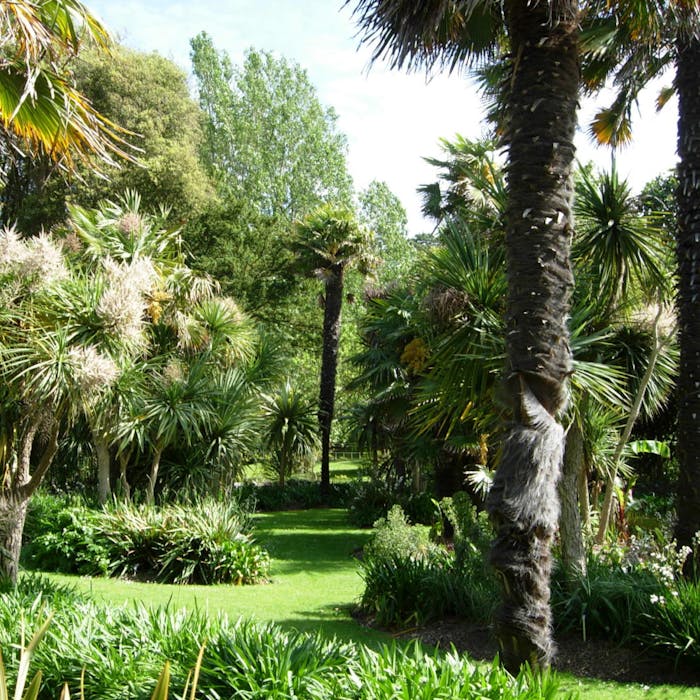
Ventnor Botanic Garden
Ventnor Botanic Garden is often called "Britain's hottest garden" due to the unusually warm climate it enjoys as a result of its sheltered position on the south coast of the Isle of Wight.
The Botanic Garden was founded in 1970, by Sir Harold Hillier, and donated to the Isle of Wight Council.
The garden has a collection of worldwide temperate and subtropical trees and shrubs organised by region.
The garden's unusual climate is more akin to the Mediterranean and enables a wide variety of plants considered too tender for much of mainland Britain to be grown. These grow in the open air, and benefit from the moist and sheltered microclimate of the south-facing Undercliff landslip area on the Isle of Wight coast.
Frost is a rare and fleeting event.
The garden has been created from the site of a Victorian sanatorium for sufferers of tuberculosis. When antibiotics thankfully made the sanatorium superfluous in the 1960s, the hospital was demolished, and the grounds developed into a botanic garden.
Following the financial crash of 2008, the owners of the gardens, Isle of Wight Council, were no longer able to afford the running costs.
With developers and hoteliers putting in bids, the best hope for the future of the gardens appeared to be an American businessman John Curtis. Curtis has been a frequent visitor to the area during his life and comes from a wealthy family whose interests have long included horticulture and ecology.
However, Curtis' management of the gardens in recent years has caused controversy, with critics claiming that his non-interventionist, environmentally friendly style of gardening is indistinguishable from no gardening at all.
But gardens are expensive and would often make much more for their owners if turned into housing. British history is littered with long gone famous pleasure gardens and estates that now lie under housing and office blocks.
Visit yourself and see what you think!
Further reading
Links to external websites are not maintained by Bite Sized Britain. They are provided to give users access to additional information. Bite Sized Britain is not responsible for the content of these external websites.
